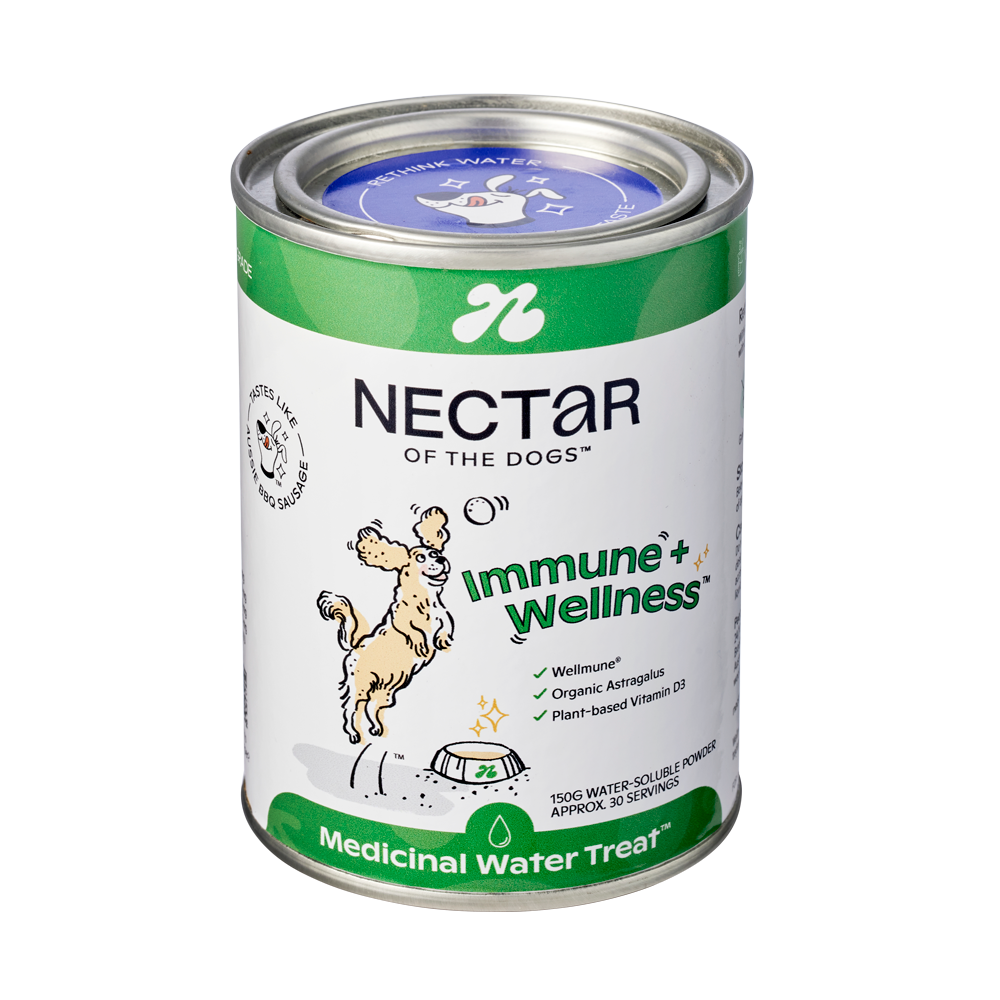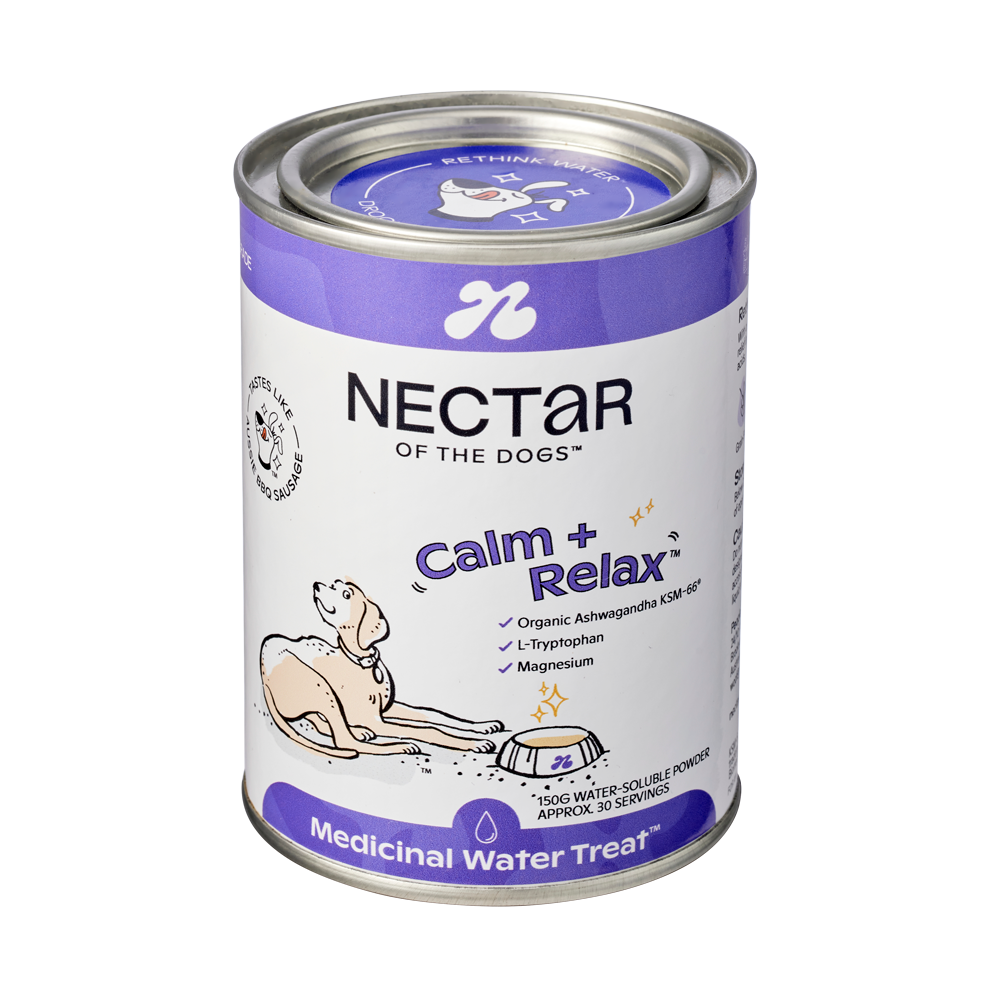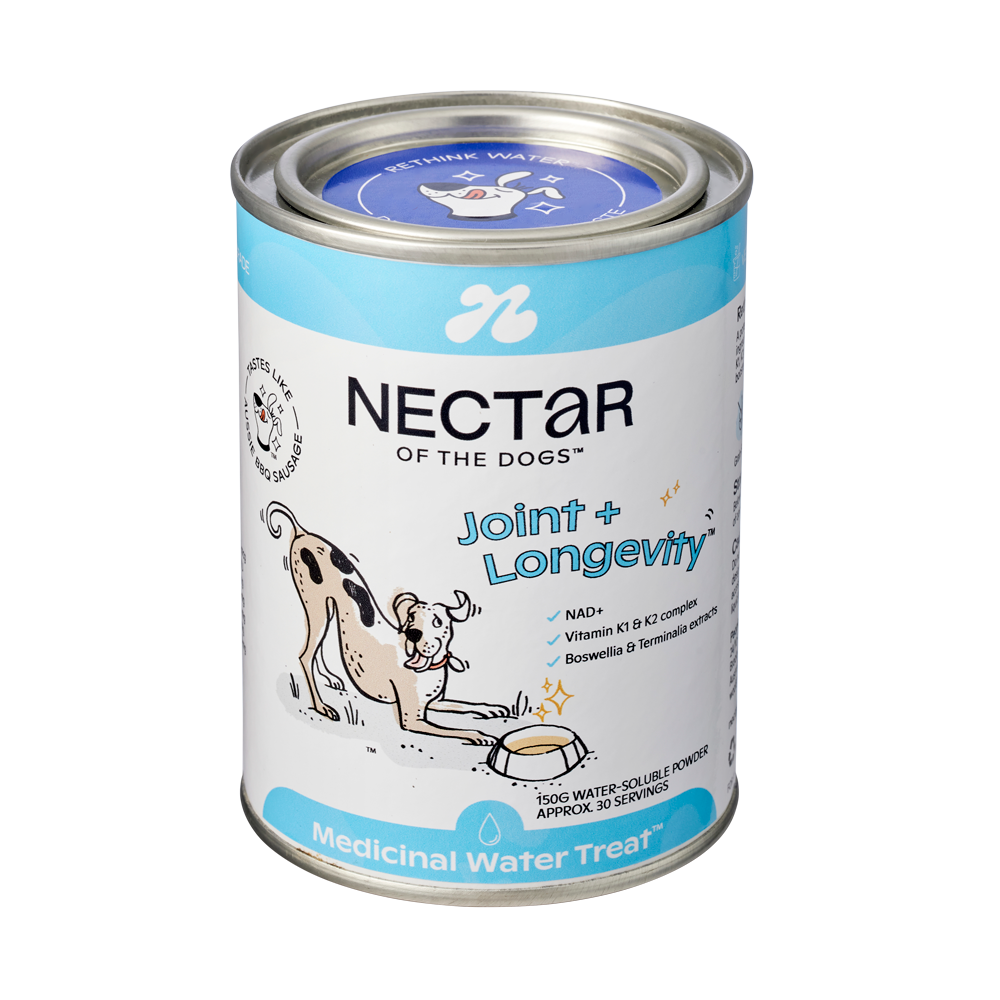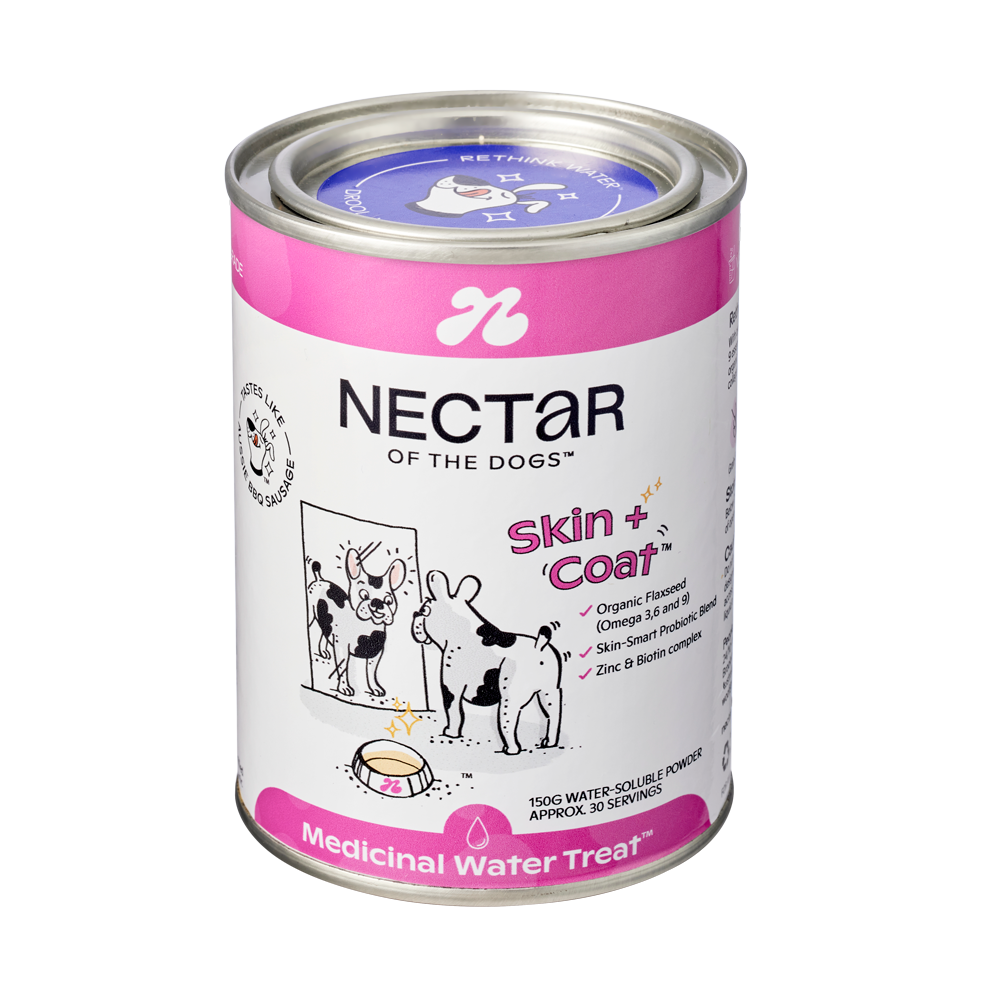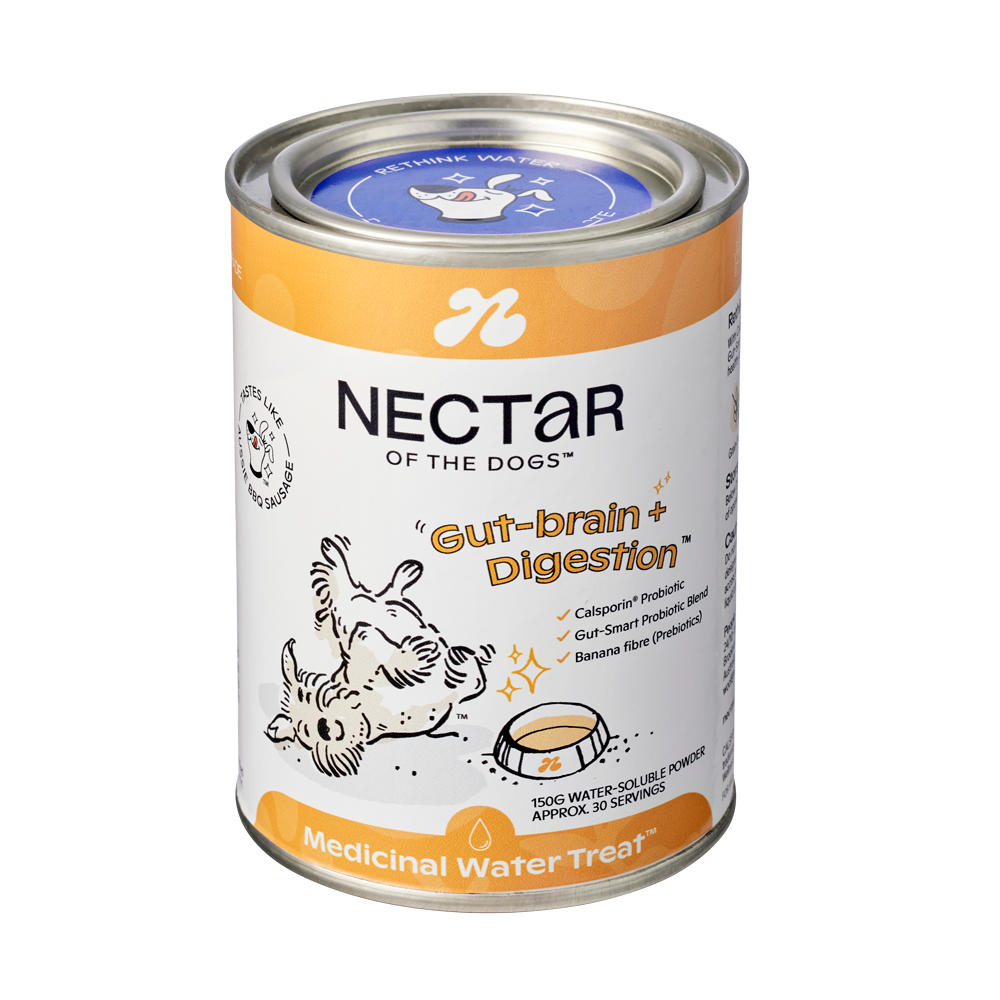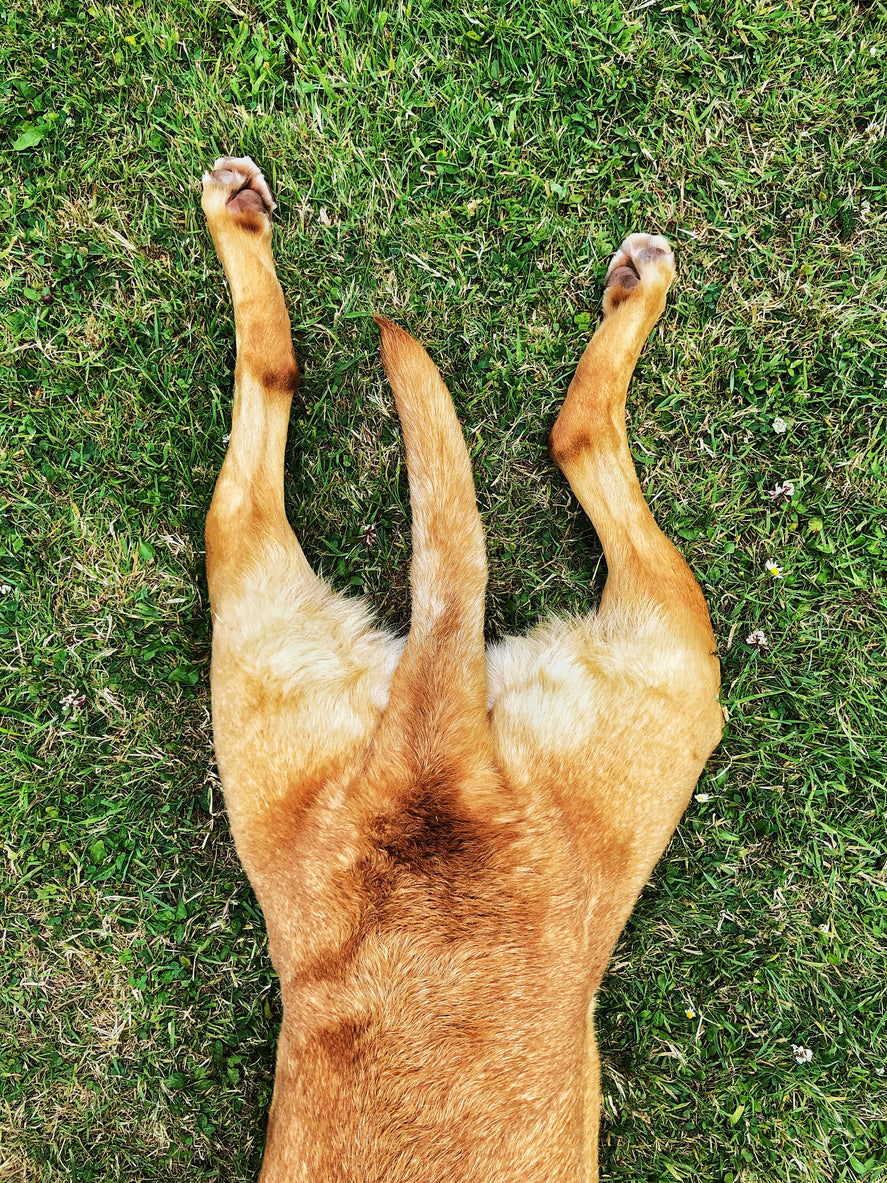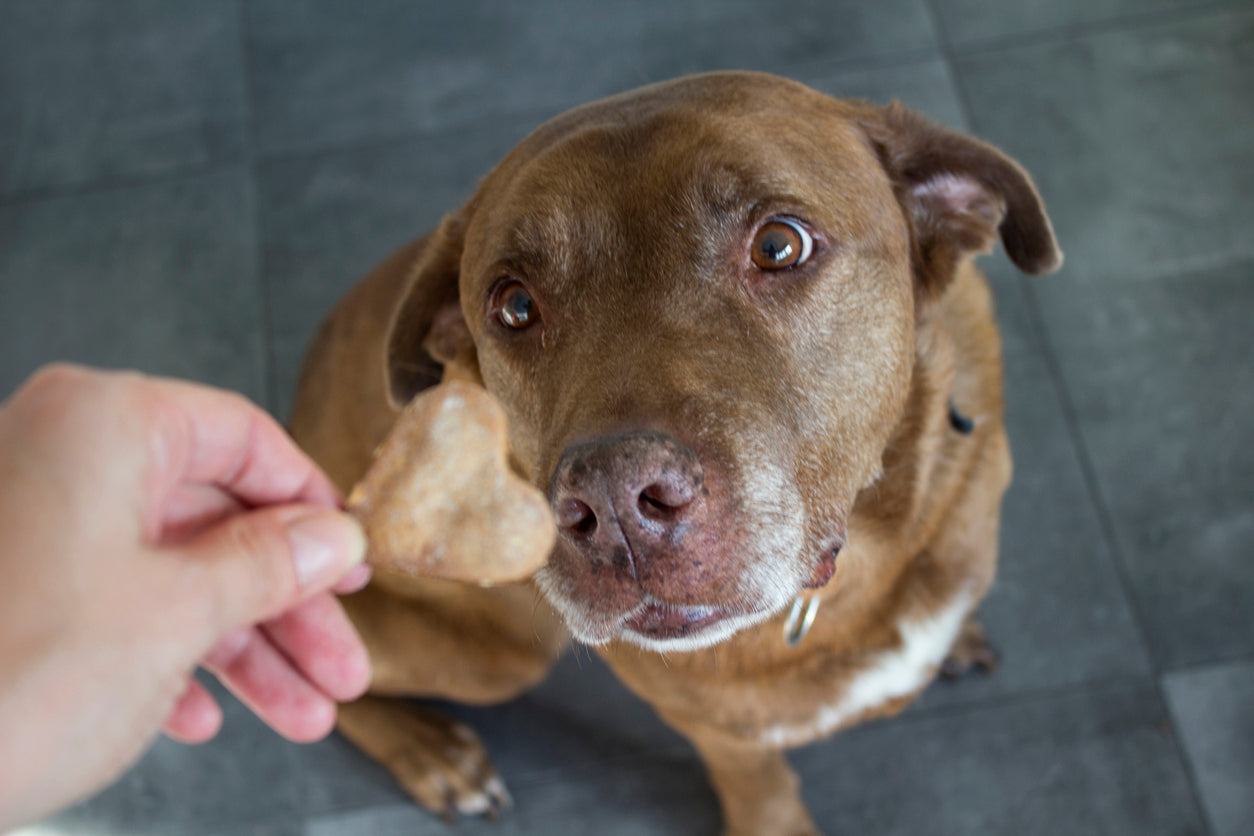Amazing ingredients for your senior dog
Are you the owner of a senior dog? Lucky you. It’s a privilege to look after a pet in their senior years and keep them as happy and healthy for as long as possible.
In the life of a dog, there are 2 stages where pet parents are the most engaged with their pet’s health and wellbeing - during the puppy stage and the senior stage. In the puppy stage you're learning all about your dog's individual quirks, whereas in the senior stage it's more about adapting to their changing needs as they age.
As dogs approach and enter senior years they go through changes and can be prone to more health issues that may require some additional support. We’re looking at some of these changes and how you can support them as they age.
Food choices to keep your senior dog healthy
So how can we give back to our best friends and make sure their older years are some of their best?
First off, a healthy diet rich in animal protein, lower in fat and higher in fibre will support your dog’s energy levels, immunity and digestion as you grow old together and supplements can be a great addition to a healthy diet.
But what are the best ingredients for your senior dog, and what nutrients can support their joint health, heart health and energy levels?

What ingredients are good for senior dogs?
An ageing dog needs a balance of nutrients and a diet that’s rich in whole foods and natural animal proteins. Amazing ingredients for your senior dog include:
- Natural animal proteins (lean muscle meat from a variety of animals and fish): Essential to their diet as the main ingredient. Unlike humans, dogs can survive without carbohydrates and favour animal proteins and fats as their main energy source.
- Vitamins and minerals especially Vitamin B, E and K: to support energy, bone health and cell function.
- Antioxidants: Reduces inflammation and help counter the effects of damaging free radicals in the body
- Prebiotics, probiotics and postbiotics: To aid digestion and immunity
- Essential fatty acids like Omega-3 and Omega-6s: To help with skin & coat health, brain function and immune health. They also have anti-inflammatory properties highly effective to manage the pain and severity of arthritis
- Glucosamine: Supports cartilage and joint health
On the other hand, it is worth keeping the level of salt (sodium) and phosphorus in check to keep healthy kidney function and blood pressure.
What nutrients do ageing dogs need?
Nutrients for ageing dogs should take into account common ailments that dogs experience as they get older.
For example, ageing dogs often need to be mindful of their joints. Like us, as dogs age they lose collagen and vital hormones that maintain the elasticity between bones. This can cause arthritis and generally slow them down, which when coupled with lower energy levels can make life a little less fun for our pups.
For joints and energy, you’ll want to give them nutrients high in collagen like animal proteins, anti-inflammatories like Terminala Chebula and ingredients like Nicotinamide Riboside Chloride which provides energy.

It’s not just about the nutrients they get, but the amounts
While joint health and energy levels are two of the most noticeable signs of ageing in dogs, the real worry could be obesity (or in some cases quite the opposite where they cannot seem to keep on weight as they poorly digest and metabolise their food) . While plenty of dogs are overweight (25-30% in fact) this number rises dramatically when dogs get older with 40-45% of dogs aged 5-11 years old being obese.
You can thank this weight gain on a decreased metabolism and lowered activity levels that decrease the amount of calories they burn per day. Pair this with the fact that most owners continue to feed their dogs the exact same amount of food throughout their lives and you’ve quickly got an overweight animal.
To avoid this trap, limit snacking for our older friends, feed either once a day or two small meals a day. Studies show that dogs fed once a day are less likely to be diagnosed with age-related conditions than dogs fed more often.
If they have to have a snack, favour low calorie dog treats from the pet store or water based vegetables like green beans, carrots and cauliflower can also make great snacks.
When should an ageing dog take supplements?
Older dogs can certainly benefit from adding supplements to their diet to give them all the nutrients they need and provide additional support but there’s no rule for when a dog should start taking supplements.
Breeds that are prone to joint health issues like Labrador retrievers, Golden retrievers, German shepherds and Rottweilers could start taking supplements with Glucosamine from the age of 18 months.
These breeds can have an issue producing healthy cartilage and as they age, cartilage in parts of their joints can become abnormally thickened and prone to flaking off (known as Dysplasia) or the some of that cartilage can wear down (osteoarthritis). To help prevent this from occurring, owners might consider supplementing with Glucosamine, which is a natural compound found in cartilage.
Supplementing with joint supplements can in this way can help dogs produce the tough tissue that cushions joints from an early age to act as a preventative measure. This is just one example of how supplements can be used early on in the ageing process to support future health.

Want to explore supplementation for your ageing dog?
Our Joint and Longevity supplement can be a great starting point to help your dog grow old healthily. It’s vet-formulated and is designed to support joint function, bones, organ health and energy levels as your dog gets older.
Our customers Allan and Molly have had an amazing experience with Nectar, finding that Molly the St Bernard has had a new lease of life after using the Joint and Longevity formula.
Allan knew that food alone wasn't really giving Molly the support she needed at her age. He says,
"I thought why not try a supplement to help her joints and mobility and see what happens. Within 4 days Molly had changed. She was keen to go for a walk and was a lot more active around the house. It brought her back to what she was like about 2.5 years prior - being active and wanting to get out and about again.”
You can read their full story here.
